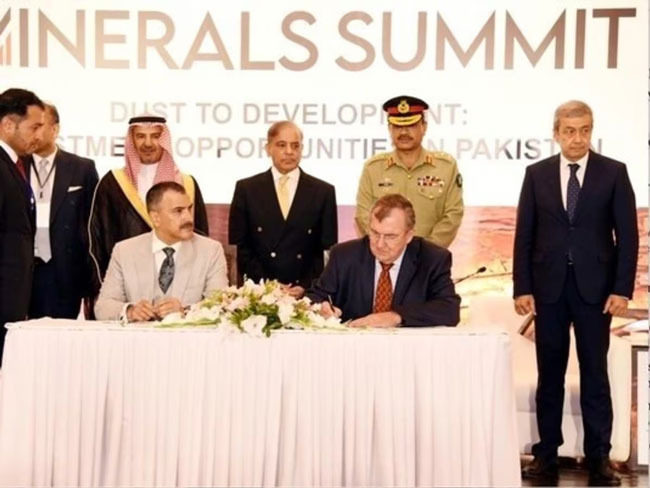Desk:Tensions have flared once again in Pakistan’s restive regions of Balochistan and Khyber Pakhtunkhwa, as well as the disputed Gilgit-Baltistan area under Pakistan-occupied Kashmir (PoK). These regions are rich in mineral resources, which the Pakistani government aims to exploit for economic development. However, local populations have long opposed these efforts, accusing the state of resource plundering without benefiting the indigenous people.
This week, Islamabad hosted the Minerals Investment Forum 2025 on April 8 and 9, where over 300 delegates from countries including the United States, Saudi Arabia, and China participated. The forum focused on how to harness Pakistan’s mineral wealth to boost the national economy and infrastructure.
However, instead of creating optimism, the summit has fueled further resentment, especially in Balochistan. Locals there argue that the state is exploiting their natural wealth while ignoring their basic needs. They allege that the riches extracted from their land benefit only the elite in Punjab, and now foreign allies are also being roped in to share the spoils.
Addressing the forum, Prime Minister Shehbaz Sharif claimed, “If we properly utilize this hidden treasure, we can free ourselves from foreign debt.” His remarks, however, were met with skepticism and anger from Baloch communities, already agitated over controversial mining projects like the Reko Diq copper-gold mine.
A local Baloch elder was quoted saying, “Our mountains are being ripped open for wealth, but our children are starving.” This sentiment reflects the deep-rooted grievances of the Baloch people, who have felt marginalized since Pakistan’s creation. The general consensus among them is that their resources are being stolen to support Punjab’s elite.
The unrest isn’t limited to Balochistan. In Gilgit-Baltistan—an area rich in gold and uranium deposits—locals are also protesting the leasing of mines to Chinese companies. There is growing demand for autonomy and local control over resources.
Former Prime Minister of PoK, Sardar Attique Ahmed Khan, voiced his frustration, stating, “All that is left for us is dust, while the wealth from our lands is being pocketed by foreigners.”
Accusations of Punjabi dominance over Pakistan’s military, administration, and politics have long been a point of contention across provinces like Sindh, Balochistan, Khyber Pakhtunkhwa, and Gilgit-Baltistan. In Balochistan, these tensions often spill over into violence, signaling a deep and unresolved crisis over regional autonomy and equitable resource sharing.




